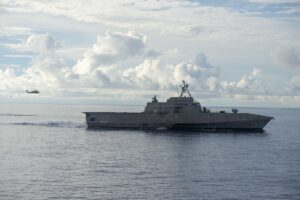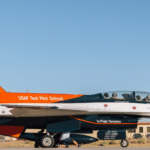
The U.S. Navy is using data analytics to improve surface ship readiness and set targets for the numbers of such ships needed to meet contingencies, a top service official said on Jan. 11. “This analytic approach allowed us to update our methodology for measuring ship readiness,” Vice Adm. Roy Kitchener, the commander of Naval Surface Forces, told the Surface Navy Association's conference in Arlington, Va. “We automated the tracking process to improve our prioritization and allocation of resources across the…













